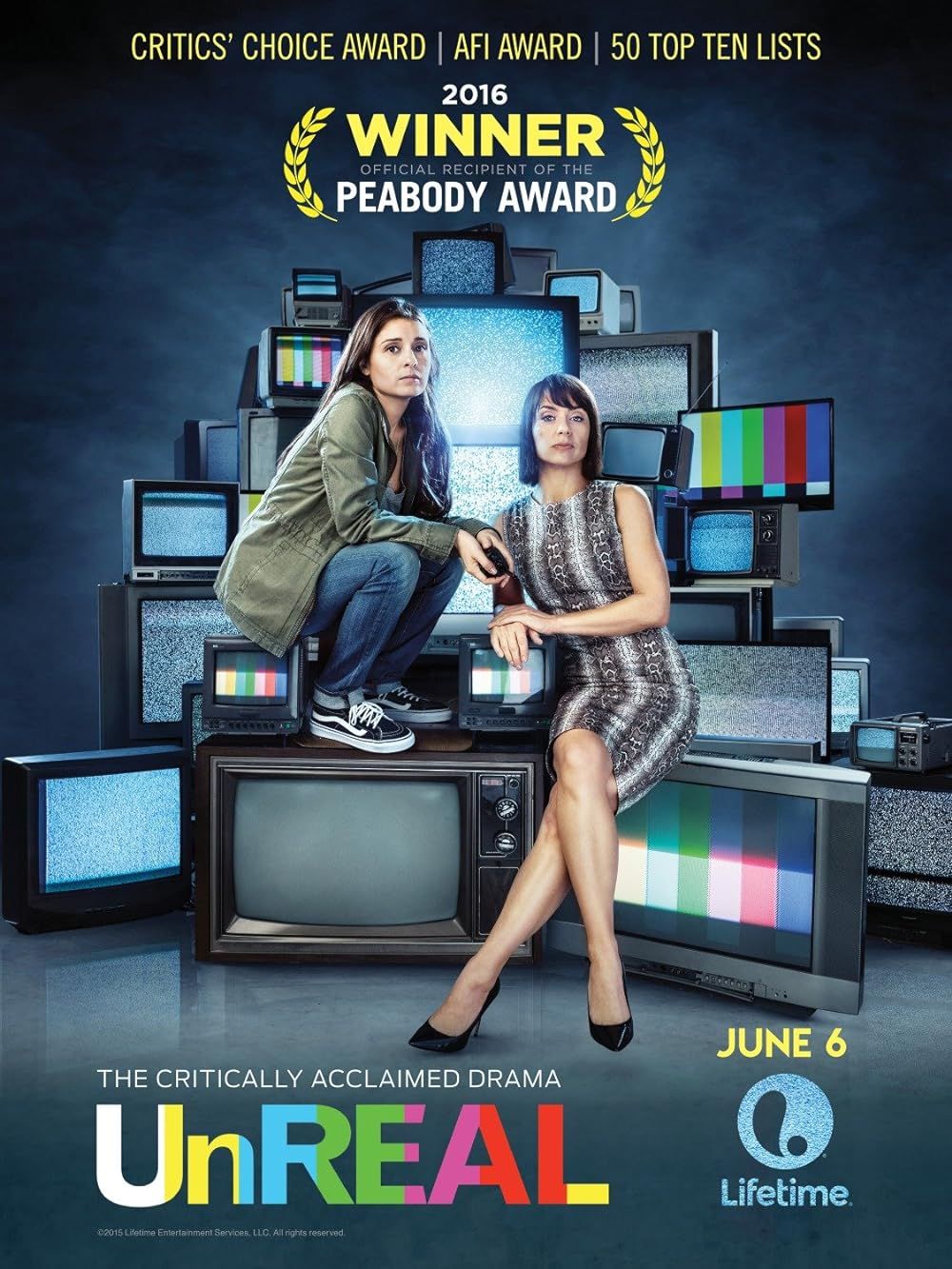The Bachelor and other similar dating competitions are some of the most popular television shows. These series feature plenty of entertaining catfights, beautiful people, and the (somewhat unrealistic) idea that love with a lifelong partner can be obtained on national TV. But most people have no idea what kind of production goes into achieving interesting episodes for these types of shows. That is until a brilliant drama called UnREAL debuted on Lifetime in 2015. The series is a biting exposé of what truly goes on behind the scenes of these dating competition shows. It features fascinating characters and suspenseful plotlines, but the series seemed to have lost its way after the first season. If it had stuck to one season, UnREAL could have stood alone as an accurate portrayal of the dark side of reality TV.
‘UnREAL’ Is an Eye-Opening Exposé of ‘Bachelor’-Type Dating Shows
The series stars Shiri Appleby as a reality television producer named Rachel Goldberg. Rachel’s job is to manage the contestants of a fictional dating show called Everlasting. Using her ability to read people, Rachel manipulates the contestants to engage in all sorts of questionable behavior as they fight to win their man (and it’s all in the name of creating jaw-dropping moments that draw in tons of viewers for the show). Rachel shuns her morals often while at work, making her an anti-hero and incredibly good at her job. The first season of UnREAL showcases the toxic relationship between Rachel and her take-no-prisoners boss, Quinn King (Constance Zimmer, who nabbed an Emmy nomination for the role). Quinn views Rachel as her protégé, but they take turns scheming against each other to climb higher in the Hollywood ranks. Each episode is an unexpected look at how these two women (and the other Everlasting producers) use unscrupulous calculations and manipulations to make watercooler moments worth gabbing about. An Entertainment Weekly review sums up the first season perfectly: “If you love The Bachelor, you’re going to like UnREAL. If you hate The Bachelor, you’re going to like UnReal.“

Related
‘Mr. Robot’ & ‘UnREAL’s Sophomore Slumps, and the Problem with Auteur Television
‘Mr. Robot’ and ‘UnReal’ were the critical darlings of last year with their debut seasons, but their second seasons are missing the mark. Is it because their showrunners have TOO much freedom?
‘UnREAL’ Goes Off the Rails in the Later Seasons
Later seasons of the series continued to receive accolades (and an overall score of 80 percent on Rotten Tomatoes), but the show made a series of missteps after its debut season. Most characters make seriously questionable choices, leaving no one to root for. Although there’s more character development later on explaining how Rachel became so morally corrupt, her habit of hurting people around her still makes her an unlikely protagonist. There’s no real character growth overall (Rachel pulls the same unethical tricks in every episode). There are also storylines that don’t fit the show’s overall campy, outrageous tone. For example, a plotline about police brutality in Season 2 would have been powerful and moving in another series but felt out of place in the glitzy world of UnREAL. Side plots such as Quinn’s love interest are out of character for her and detract from the more interesting storylines with the reality show contestants. The series starts as an acerbic take on what people are willing to do to be famous and what the producers are willing to do to capture it all on camera. But after Season 1, the writing feels more repetitive (and less logical). The message of the dark side of fame gets completely lost when the storylines feel like they’re repeating.
UnREAL aired its first three seasons on Lifetime but switched to Hulu for its fourth and final season in 2018. Lifetime was moving away from scripted television, and the series hadn’t been doing well in the ratings, but because it was a popular show to binge, the jump to a streaming service made sense. However, by this time, most viewers had switched off. It no longer seemed as groundbreaking to see the behind-the-scenes production of a dating show. An Indiewire review of the final season stated that UnREAL is “a show that wants to eat its cake and also set it on fire. Over the course of its run, UnREAL tried to be a whole lot of things: dark comedy, prestige drama, reality satire, soap opera, feminist manifesto. It pulled off some of those aspects a lot better than others, but even that imbalance grew to the point of frustration.”
If UnREAL had existed as a stand-alone season, it could have served its true purpose: a sharp take-down of the reality dating genre. Its intriguing, thought-provoking characters could have drawn viewers in and given them food for thought (without getting dragged into inane plots). Instead, it devolved into the kind of mess that it was trying to depict. The drama is a great example of a series with a perfect premise, but one best explored in a concise framework of a single season.
UnREAL is available to stream on Netflix in the U.S.

.jpg)




